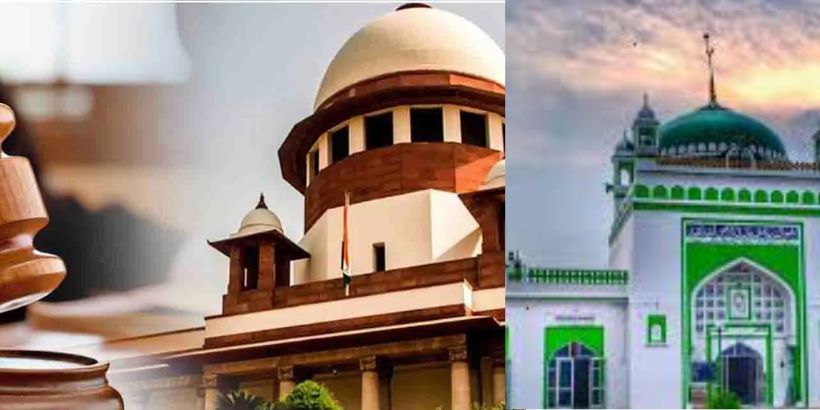The Places of Worship Act of 1991, which is often cited in the court, has raised questions on its constitutionality. The Places of Worship Act has been challenged in the Supreme Court. Senior advocate Vishnu Shankar Jain has filed a petition in the Supreme Court. Let us tell you that a total of 6 petitions related to challenging the constitutionality of this Act have been filed in the Supreme Court. According to media reports, on December 12, the Supreme Court will hear the petitions challenging the constitutional validity of the Places of Worship Act 1991. According to the information, a bench of three judges will hear the case. Let us tell you that this hearing will be held on December 12 at 3.30 pm.
The cut-off date should be 712 AD – Vishnu Shankar Jain
Let us tell you that on December 5, advocate Vishnu Shankar Jain had said that “We have challenged the constitutional validity of the Places of Worship Act 1991. Jamiat-Ulema-e-Hind is citing this Act and saying that you cannot go to court in any matter other than Ram Mandir.” Meanwhile, Jain had also said that “This thing itself is completely wrong and unconstitutional. The most important thing is why the cut-off date in the Places of Worship Act is kept as 15 August 1947. The cut-off date should be 712 AD, when Mohammed bin Qasim first attacked undivided India and demolished temples.”
Read Also:- ED raids 7 places in Mumbai and Ahmedabad and seizes crores of cash
What is the Places of Worship Act and why was it needed?
Let us tell you that in the year 1991, the Congress government led by the then Prime Minister Narasimha Rao made a law, which was named the Places of Worship Act. According to this law, any religious place that came into existence before 15 August 1947 cannot be converted into a place of worship of another religion. The important thing is that at that time the Ram Mandir case was in court, so it was kept out of this law. There is also a provision for punishment in this. Violation of this can lead to imprisonment of one to three years and fine. The big question is why this law was needed, the answer to this is that by the time Narasimha Rao’s government came, many controversies like Ayodhya arose. To stop this, the Places of Worship Act was brought. At that time BJP had opposed this bill. There was a demand to send it to the JPC, but despite this it was passed in the House.
Latest News Supreme News Network
#IndianLaw #SupremeCourtIndia #PlacesOfWorshipCase #ReligiousRights #LegalReforms #CourtHearingIndia #IndiaLawNews





